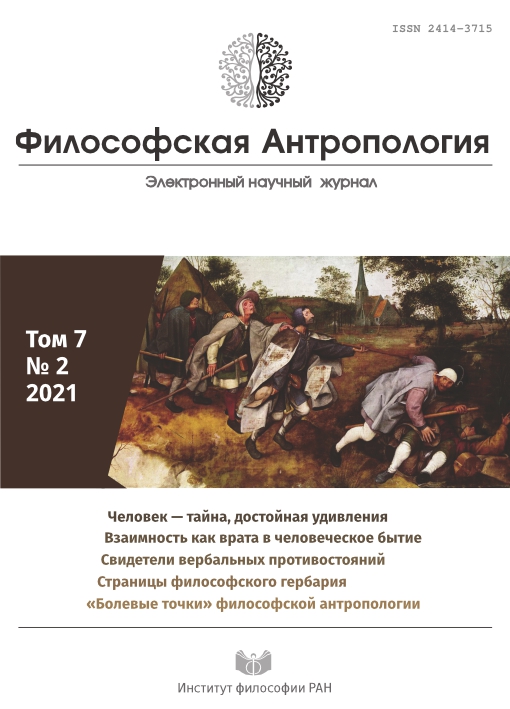The Philosopher’s plant: An Intellectual Herbarium (Aristotle Wheat (chapter 2), Avicenna’s Celery (chapter 5))
DOI:
https://doi.org/10.21146/2414-3715-2021-7-2-48-84Keywords:
Aristotle, Avicenna, vegetable soul, animal soul, organism, part and whole, teleology, nourishing capacity, plant love, raw juicesAbstract
The journal continues to publish translations of chapters of the book by the famous phenomenologist Michael Marder “The Philosopher’s Plants (An Intellectual Herbarium)”. Two of the twelve stories were chosen — “Aristotle's Wheat” and “Avicenna's Celery”. The author analyzes the views of the ancient philosopher Aristotle and the medieval Persian philosopher and physician Ibn Sina (Avicenna) on the nature of plants and their place in the diverse world of living beings, showing how the images of wheat and celery become an important part of their philosophical reflections.
Marder emphasizes that the ancient scientists were alien to modern systems of biological classification. Each creation occupied its own niche and existed for a specific purpose. However, the contours of these teleologies were not at all what we imagine them to be. For example, for Aristotle, a noble man, a noble animal and a noble plant had more in common than two representatives of the same biological kingdom. In addition, the boundaries between them were quite shaky. A stupid person, unable to follow the strict principles of logic, was literally like a plant. Avicenna discovers in plants the “vegetable soul”, above which he puts the “animal soul”. He finds both of these levels in a person. Awareness of this totality is necessary, according to Avicenna, for genuine self-knowledge and, consequently, for the knowledge of God.
The author of the book attempts to answer the question: what if the mixture of similar beings passing into and out of each other, characteristic of the ancient and medieval world, is not a fantastic fiction, but an insightful description of our transgenic present and future?

